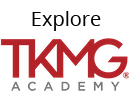

It’s been interesting to see what people have picked up on as I’ve been promoting my new book, The Outstanding Organization.
My original title was Curing Chaos. My McGraw-Hill editor at the time vetoed that and created the book’s current title. I didn’t like it at first, but it grew on me and I now like it a lot. Further down the publishing road, the same editor decided to reintroduce “chaos” by showcasing it in the subtitle and, sure enough, that’s what people are drawn to. So my inclinations were right—they just had to be adjusted a bit.
This week www.changethis.com (the folks at 800-CEO-READ) ran a manifesto I wrote and I’ve gotten not only tons of enthusiastic feedback, but I’ve also gotten calls from three prospective clients as a direct result of the manifesto: “Please help us reduce chaos!”
So off I go, doing what I can to help companies reduce chaos. It has become my mission. At their core, all of the Lean values, practices, and tools are about reducing chaos. But chaos has an emotional charge that many Lean words don’t carry. Maybe we should all start framing things in terms of chaos and chaos reduction. What do you think?
Bob, great insights! You said my favorite word: “tampering.” When robust problem solving isn’t employed, tampering nearly always results which causes chaos. Darn it, where were you when I was writing that chapter! :-) Glad you’re enjoying the book!
Hi Karen. Thanks for your kind comments!
I agree that robust problem solving is a key competency, and I like how your recent webinar drove this point home. I found it interesting that you went back in history to re-interpret the meaning of Plan Do Check Act (PDCA) and suggested that Plan Do Study Adjust (PDSA) would be more helpful. I also liked how you are carefully defining a “countermeasure” and how it is different from a “solution”. I think our terminology absolutely matters because these small nuances create a huge change in our expectations.
Chaos reduction may be less about hitting a home run each time at bat; it might be more about a series of base hits (and the occasional swing and a miss). Our coaches must be there to support us as we all learn to improve our game…
I am looking forward to continuing to learn from you (just starting on Chapter two). Wishing you the best!
Thank you Bob! If anyone wants to listen to the webinar Bob’s referring to, you can locate at https://vimeo.com/46939384. My full webinar library is also available at tkmg.wpengine.com/webinars,
I agree with you on the title, Karen. “The Outstanding Organization” is just not different enough from all the other superlative promises out there. You introduce beautiful, simple ideas boiled down to single words not often used in the lean world. Were I to title it, I would try something like “From Chaos to Clarity through Focus, Discipline, and Engagement: A Guide to Sustainable Growth and Profit”
Other ideas to play with would be my most successful books and marketing headlines that included, Fundamentals of, Basics, How to, Ten ways, and so on. Not all appropriate for your book, unless you can wrap them into the subtitle.
My advice is to carefully pick your tagline and use it together with your title in everything you write. One of my publishing mentors once said, never be afraid of a really long subtitle.
It’s not as bad as Steve Spear’s “Chasing the Rabbit,” which was changed in a later
printing.
That editor needs to get out of the silo and hang out with the marketing folks for a while, and also go to the bookstore and look at what’s on the business shelves. If they all contain the words excellence or passion, you know what to avoid. Amazon rankings are based on too little data for a niche book, but looking up the relative position of competitive books would be another piece of information to add. The editor also should have access to sales data for the company’s books in that category and could pull out some patterns. Better still, how about bringing together a group of folks from different departments and engage them in choosing effective titles for upcoming books.
Hi Karen. Thank you for your comments. I hope I was clear that I ended up very much agreeing with my editor. What I didn’t include in my post is that the litmus test for many business book publishers is whether a CEO would be comfortable being seen reading a book on a plane or train. Curing Chaos was deemed a little too risky in terms of that litmus test. I could see this–after all, who would want to be reading a book “Breaking Your Heroin Habit”? But putting the word chaos in a subtitle is less “in your face.” I think it was a good move.
Personally I find the “6 steps…”, “10 ways…”, “5 must-do’s…” type of titles to be overused and overly simplistic. But that’s why writing is called art. Different strokes for different folks. While my main title may seem a little bland, it’s spot on for describing my book’s content: how to achieve outstanding performance.
Hi Karen,
Thanks for the response. I like the picture of the CEO reading on the plane — hadn’t ever thought much about that one. I agree that the titles I gave were more on the engineers or manager’s level, except that they might be useful in a headline at times.
I was perhaps ungracious about how editors and publishers make their decisions. While I may disagree with the title, telling an editor I don’t know to get out of a silo is getting carried away with rhetoric. There are a thousand decisions to be made between author and editor in publishing a book. I’m reading yours now and believe the 999 others must have been right on — it’s a great result.
Tony Schwartz also had a title change and I’ve often thought it wasn’t for the better. His went from The Way We’re Working Isn’t Working to Be Excellent At Anything. The move illustrates publishing’s propensity for the positive message vs. the negative one. This is exactly what I’ve been through. While it went from specific to general, it also went from negative to positive. Ya know, they DO know what sells. I didn’t include the saga about my subtitle, which ended up as it is largely based on Google analytics and likely searchable terms. It still reflects the book’s content, so they don’t go that far, but it’s far more about book’s having an online life than being perfectly matched to content. I’m currently in the acceptance mode and figuring that they may know more than I do. But I hear you.
by Robert (Bob) Petruska
Self inflicted chaos happens sometimes in organizations that have lost a line of sight between cause and effect. Imagine a band of pirates who have just captured a cruise ship; their frenetic pushing of buttons and pulling of levers only results in the vessel going around in circles. Likewise, as managers tamper with a system of work that few (if any) fully grasp; layoffs, reorganizations, and “change for the sake of change” ensue.
I like where you are heading, and am enjoying your new book! Thanks for posting.